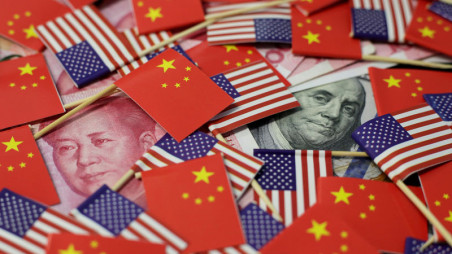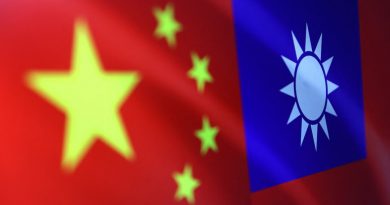United States imposes visa curbs on members of Chinese Communist Party
Washington (Reuters) – U.S. President Donald Trump’s administration has issued rules to restrict travel to the United States by members of China’s ruling Communist Party and their families, in its latest move to push back against Chinese activity in the country.
The policy reduces the maximum validity length of B1/B2 non-immigrant business and tourist visas for party members and their immediate family members from 10 years to 1 month, the State Department said in a statement on Thursday.
The measure was aimed at protecting the nation from the party’s “malign influence,” it said, adding the party works to “influence Americans through propaganda, economic coercion, and other nefarious activities.”
It said the party, which has more than 90 million members, also “sends agents to the United States to unabashedly monitor, threaten, and report on Chinese nationals and Chinese-American groups.”
The Trump administration has sought to cement the outgoing president’s tough-on-China legacy, and relations between the world’s two largest economies have sunk to their lowest point in decades.
China’s foreign ministry denounced the move.
“This clearly is an escalated form of political oppression towards China by some extreme anti-China forces in the U.S. who act out of intense ideological bias and a deep-rooted Cold War mentality,” foreign ministry spokeswoman Hua Chunying said.
It was the latest step against what Washington calls Chinese influence operations in the United States and comes less then two months before President-elect Joe Biden is due to take office.
Washington and Beijing have also clashed over China’s handling of the coronavirus outbreak, its tightening grip on Hong Kong, its disputed claims in the South China Sea, trade and accusations of human rights crimes in Xinjiang.
On Wednesday, the Trump administration expanded economic pressure on China’s western region of Xinjiang, banning cotton imports from a powerful Chinese quasi-military organization that it says uses the forced labor of detained Uighur Muslims.
Also on Wednesday, top U.S. security officials said more than 1,000 Chinese researchers had left the United States amid a U.S. crackdown on alleged technology theft and that Chinese agents had already been targeting the incoming Biden administration, charges China called “ludicrous.”
In yet another move on Wednesday, the House of Representatives passed a law to kick Chinese companies off U.S. stock exchanges if they do not fully comply with the country’s auditing rules, giving Trump one more tool to threaten Beijing with before leaving office.
Last week, Reuters reported the United States was poised to add China’s top chipmaker SMIC and national offshore oil and gas producer CNOOC to a blacklist of alleged Chinese military companies, curbing their access to U.S. investors.
News of the new visa restrictions was first reported by The New York Times. The new visa guidelines allow American officials to determine someone’s party status based on their application and interview, it reported.
Immigration experts say the new restrictions will not mean much until a COVID-related ban on travelers from China issued by Trump in January is lifted. Only 61 B-1/B-2 visas were issued to mainland Chinese nationals in October, compared with more than 60,000 in the same month last year, according to State Department figures.



